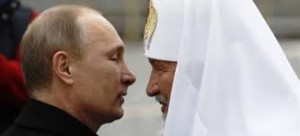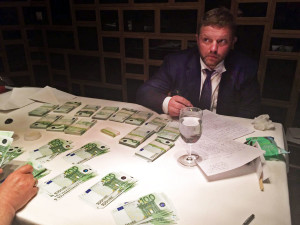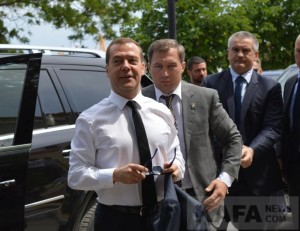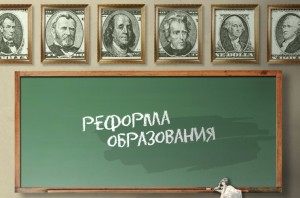
The newly established authoritarian regime in Russia has chosen to make the promotion of spirituality that is being served up as an intrinsic part of Russian culture and self-identification of the Russian nation as one of its priorities. It is obvious however that the regime’s real purpose consists in using this simple method to force its nationalist and patriotic rhetoric onto the population by glorifying the county’s past successes and inspiring pride in the “centuries-long history of the Russian empire” which in its turn allows the regime to draw the population’s attention away from the authorities’ lack of competence in governing the country and to cover up the most flagrant corruption by top Russian officials.
Responsible for spirituality, the Russian Orthodox Church (ROC) is formally separated from state institutions that, according to the law, are supposed to be secular by nature. However, ROC enjoys a number of economic advantages that have been granted to the Church during the Putin’s era. Thus, for example, it is impossible to use standards methods to calculate its “market capitalization” because legally, ROC is divided into more than 30,000 different organizations and since the mid-1990s it has not been disclosing either its gross budget or expenses. According to certain estimates, ROC’s income possibly reaches 5.6 billion rubles (or around $87 million) a year, without including federal funds that are being allocated annually to ROC and structures close to it which amount to another 3.5 billion rubles (or about $54 million). This does not seem such a large sum for a Church with more than 50 million faithful, does it?
However, this is only a part of the Church’s budget that different sources or ROC representatives themselves disclose from time to time in their statements. Read More “The Russian Orthodox Church during the Tsar (President) Putin’s era”








